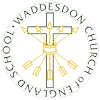
Our daily routines and educational practice are rooted in the twin values of Dignity and Respect.

In Spanish, our main aim is for students to develop a deep appreciation of the Spanish language and culture. Through continued speaking practice within the classroom, students develop their ability to communicate confidently with increasing accuracy, and to articulate thoughts and ideas with growing fluency. A residential visit to Seville enhances students’ appreciation for other cultures. A language course led by native speakers is included in the visit.
Ms Helen FitzgeraldSubject Leader for Modern Foreign Languages |
Mr Alberto de la Guardia GarciaSpanish Teacher |
Mrs Valérie BakerSpanish Teacher |
Key Stage 3: Our intent at KS3 is to maximise students’ access to foreign languages and instil an enthusiasm for languages and their associated culture and customs. Students begin their study of Spanish in Year 8 and use the Mira Express textbook which allows students to learn the past, present and future tenses by the end of the year. Low- stakes homework tasks are introduced to provide practice and enjoyment of speaking Spanish. At the end of Year 8, students of Spanish are encouraged to take pride in their work and produce a Best Piece of Work. This forms a basis for the GCSE course, and should they choose to take their study of Spanish further, students refer to this piece of work in Year 9.
Key Stage 4: The curriculum delves deeper into ideas that have been introduced in part at KS3, allowing for revision of knowledge before deepening the content. Increasingly complex vocabulary and grammar are introduced to students and there is a large focus on listening, reading, writing, translation and speaking skills. Students refine their depth of knowledge in each component. Assessment practices are introduced in Year 9 and students begin their practice of past GCSE questions on particular topic areas. This builds students’ confidence and resilience when faced with unfamiliar language. Students experience their first mock speaking exam in Year 9, and this practice continues throughout Years 10 and 11.
Key Stage 5: Our intent at KS5 is to maximise students’ passion for languages with a view to taking their knowledge of Spanish further in the future. Students complete an individual Research Project and this encourages them to think critically, evaluate knowledge that has been presented to them and present their own ideas and analysis of their findings. By the end of Year 13, students have developed the necessary skills to analyse complex and numerous resources and produce a bibliography in Spanish. We offer foreign languages conferences, visits to London to develop reading and research skills, study of foreign literature and films and the use of native language speakers in lessons.
Students are taught the following topics in Year 8:
Students are taught the following topics in Years 9 to 11:
All grammar points are introduced through these topic areas and listening, reading, writing, speaking and translation skills are regularly practised throughout the course.
Students are taught the following topics in Years 12 and 13:
A 4-day visit to Seville is offered to students in Years 9 and 10.

Waddesdon Church of England School’s Assessment and Feedback Policy. At Waddesdon our aim is for assessment to be: